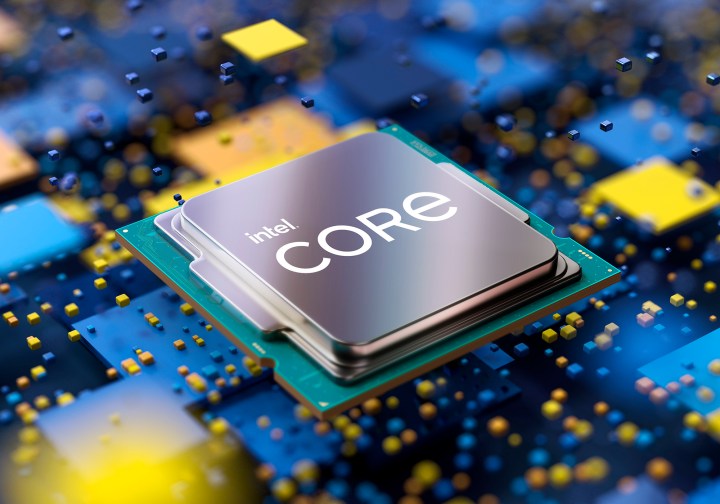The next generation of Intel Core processors, dubbed Alder Lake, is set to release this fall. Several benchmarks of the new CPUs have been leaked to the public. The benchmarked models include a 16-core desktop processor and a 14-core mobile processor. Leaks show that these new CPUs may bring a marked increase in performance.
While multiple Alder Lake processors are currently being tested, the latest leaks showcase the performance of one desktop and one mobile CPU. It has been confirmed that the desktop CPUs are going to require an LGA 1700 socket, while mobile Alder Lake will use an FCBGA 1744 socket. Both of the benchmarked CPUs feature next-gen Intel Xe graphics architectures.

The desktop variant comes with 16 cores and 24 threads. The model that was benchmarked is likely one of the top models that Intel is going to offer, featuring eight Golden Cove and eight Gracemont cores with 30 MB of L3 cache. Intel’s new Alder Lake desktop chip will have a base clock of 1.80GHz, but due to an error in the leaked benchmarks, we don’t know the maximum clock speed yet.
This version of the CPU includes a next-gen graphics card, the Xe-LP, which sports 32 execution units (EUs). Xe-LP also has 256 cores with a 1500MHz clock speed. In one of the benchmarks, the new Alder Lake graphics were tested against Rocket Lake’s UHD 750 iGPU. This comparison showed a definite increase in performance — Alder Lake scored 8,647 points compared to the UHD 750s 7,974, adding up to a boost of around 8.5%.
It’s worth noting that these numbers may still change in future benchmarks. The iGPU on Alder Lake has a 200MHz faster clock speed than Rocket Lake, so an increase is to be expected. However, there are no dedicated drivers for Alder Lake yet, so this might affect the benchmarks. The final release might bring an up to 10% performance gain, although it may also turn out to be slightly lower than the current 8.5% result.
As for the mobile version of Alder Lake, the benchmarked model runs on an Alder Lake-P ES chip and features a 14-core, 20-thread combination. The core configuration is going to include six Golden Cove and eight Gracemont cores. The clock speeds that were made public are not yet final, but the current estimates show an 800MHz base clock speed with a boost of up to 4.0GHz.
The mobile version of the chip has a 24MB L3 cache and also comes with Intel’s UHD Xe-LP graphics card. It hasn’t been made clear whether this card is an integrated model or a discrete GPU. What we do know, however, is that it features 96 EUs, 768 cores, 1.5GB of memory, and a clock speed of up to 1200MHz.
Comparing the mobile and the desktop chips nets interesting results. Intel Alder Lake P, which is the mobile chip, scores 6,516 points in the OpenCL benchmark. This may come as a surprise, considering the fact that the mobile graphics chip has over twice the number of cores. One of the reasons behind this relatively low score could be that there are no optimized drivers for the mobile CPU.
Intel has stated that Alder Lake, the 12th generation of Intel CPUs, is set to release this fall. As the launch gets closer, it’s likely that more benchmarks will leak, hopefully showing a wider range of the future Alder Lake processors.



